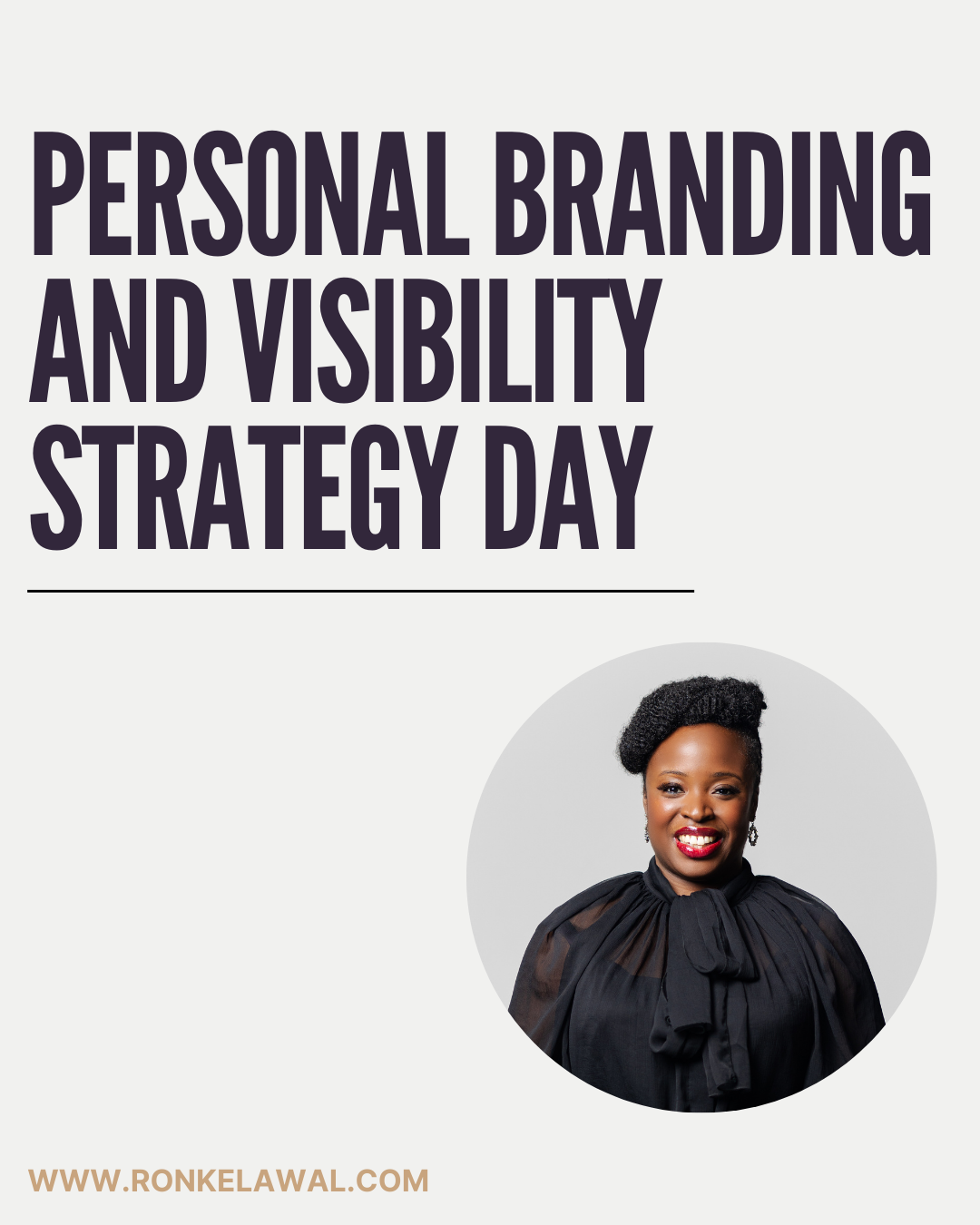What Holds Back High-Achieving Black Women and How Personal Branding Can Break Through
In every boardroom from London to Lagos, Toronto to Dubai, there are Black women leading with vision, strategic brilliance and measurable results. However so many of them remain overlooked, underestimated or boxed into roles that do not fully reflect their value. Despite having the credentials, track record and insight, they often find themselves on the outside of high-influence networks, major speaking platforms and succession pipelines. It is a scenario that I am more than acutely aware of when working with my personal branding clients.
These women are abundantly talented but the roadblocks are clear and deliberate. For many high-achieving Black British women in leadership, there is an unspoken pressure to outperform consistently just to be seen as equal in systems and organisations which are institutionally racist and prejudice. Visibility does not always lead to influence, in fact it is sometimes discouraged or undermined and so navigating the intersections of race, gender and leadership identity adds a layer of complexity few others fully understand particularly when combined with cultural expectations within African and Caribbean diaspora groups.
In many corporate environments, the “safe” Black woman leader is seen as competent, hardworking and agreeable because she gets the job done and doesn’t seek too much attention therefore she is rarely positioned as a visionary. Meanwhile, others from different demographics with less experience but louder voices move ahead. In the UK, Black women are among the most educated demographic groups but remain underrepresented in executive roles, in the US, they are often expected to be the fixers rather than the strategists. In countries like Canada or Germany, cultural nuance and tokenism can create a performance paradox: be exceptional, but not too bold. In the UAE, where leadership culture is deeply hierarchical, Black women from the diaspora may find that professional etiquette expectations limit how they express ambition or authority. What is common across these regions is this: Black excellence alone does not shift perception.
A personal brand helps reclaim authorship of one’s leadership story and professional journey. It is not about creating a version of yourself for show, it is about making sure the version that is already making an impact is not hidden in plain sight. For Black women navigating global leadership, this is more than a performative exercise, it is about showing up on your own terms, visibly and unapologetically, in digital spaces, real life rooms and in the minds of decision-makers. It changes the narrative from being seen as “highly capable” to being respected as a strategic, future-facing leader.
When built intentionally, a personal brand elevates you beyond job titles and performance metrics. It allows your ideas, your voice and your leadership approach to be associated with influence. This is especially important in systems where unspoken biases still exist and structural racism is persistent. A strong personal brand online acts as a digital archive of your thought leadership: proof of your authority, not just your work history and it becomes a tool not only for visibility but for access, access to new opportunities, to global platforms, to roles that match your potential.
It is easy to assume that a great CV or impressive title is enough but leadership visibility today is not only earned through hierarchy, it is cultivated through storytelling, digital presence and strategic positioning. If decision-makers are searching your name and finding little more than a LinkedIn job summary, there is a missed opportunity. In today’s interconnected world, your online presence speaks before you enter the room and if it does not reflect the scale of your impact, someone else’s will.
For Black women, especially those leading in industries where few who look like them exist at the top, personal branding is not self-promotion, it is narrative control. Personal branding turns lived experience, cultural fluency and strategic insight into a leadership identity that resonates beyond borders and invites recognition that matches contribution. It pushes back against the silent assumption that competence does not equate to influence.
In the UK, many Black women find themselves in a unique position. They navigate a leadership culture that celebrates understated presence, yet often overlooks those who stay quiet. American conversations on race and identity do not fully map onto the British context, and many find themselves operating in a system that neither acknowledges bias directly nor offers tools to address it. But from my experience the desire to be known for more, to lead visibly and not just effectively, is shared globally. In the US, personal branding is being used by Black women to break into C-suites and boardrooms with bold, unapologetic leadership profiles. In Nigeria and South Africa, rising executives are embracing storytelling and digital visibility as ways to command space in emerging industries. In Dubai, diaspora women are crafting personal narratives that position them as cultural bridges, global thinkers and market leaders.
Wherever you are in the world, if you are a Black woman leading at the top or breaking into the top, the way you are perceived will impact how you advance. You have done the work, you have led the teams, delivered the results and exceeded expectations and now the focus must shift from simply executing to intentionally being seen. Leadership is not just about what you achieve it is about how the world experiences your presence, your thinking and your vision.
Personal branding will not dismantle systemic barriers overnight - that is not what this is about. But it can do is equip you with the tools to rise in spite of them and in doing so, it helps make space for others who will follow. The glass ceiling does not shatter from silence. It breaks when the voices of those who were always more than qualified finally get heard, shared and seen.
If you’d like to discuss how I can help you raise your visibility wherever you are get in touch or book a session.

